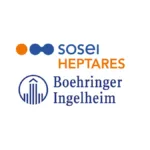Siemens Healthineers is constantly at the forefront of MedTech advancements, transforming healthcare throughout the Middle East and Africa. The organization has a significant influence on how the healthcare industry is shaped due to its dedication to innovative solutions. This Interview with Vivek Kanade, Managing Director, Siemens Healthineers Middle East and Africa highlights the significant work Siemens Healthineers has done in the area and captures the commitment to advancing medical technology to improve patient care and results.
MedEdge MEA: How does Siemens Healthineers address healthcare gaps in the Middle East & Africa, specifically through partnerships or projects?
Vivek Kanade: Addressing healthcare gaps through innovation and partnerships is one of the strategic priorities for Siemens Healthineers in the Middle East and Africa. Our Value Partnerships framework is designed as a catalyst to optimize, expand, and advance healthcare pathways. For instance, our 10-year Value Partnership with the Portuguese general management company Idealmed Global Healthcare Service (IGHS) is helping Oman International Hospital transform into a premier private healthcare facility in Muscat.
We have also partnered with Dallah Healthcare at the Dallah Nakheel Hospital in Riyadh, Saudi Arabia, to expand the medical facilities, modernize technology and ensure ongoing access to the latest healthcare innovations. Our partnership with Aster DM Healthcare covering seven hospitals is another prime example of innovation in healthcare. Our long-term Value Partnership with PRIME Healthcare in the UAE entails technological upgrades, maintenance, consulting and educational services to further enhance the hospital chain’s services and their patient’s experience.
MedEdge: Explain how Siemens Healthineers integrates digital technology and AI to enhance healthcare services
Vivek: We have been actively incorporating digital technology and AI to enhance Clinical Decision Support, for instance, the AI-Rad Companion provides healthcare professionals with real-time information and insights, aiding in better and more informed clinical decision-making. Another example is the syngo Virtual Cockpit, our remote scanning software, which enables healthcare providers to monitor patients remotely, potentially reducing the need for hospital visits and making healthcare more accessible.
On the medical imaging front, our software incorporates AI algorithms that assist in image analysis, helping to detect and diagnose diseases more accurately and efficiently. And then in the lab setting, our digitally-enabled solutions allow for automated processes, improved accuracy in test results, and faster turnaround times.
MedEdge: Highlight the recent impactful breakthroughs or innovations in medical technology within the Middle East and Africa region.
Vivek: Catering for a steadily increasing range of patients across all our different modalities, we offer for example mobile imaging solutions in computed tomography to provide quality diagnosis tools in remote areas with no direct hospital access. We are also expecting another leap forward in the accessibility of healthcare services through our autonomous drone transportation pilot, as we are trying to connect central laboratories via spoke-hub to patients in rural areas, as we are enhancing the local infrastructure to enable fast and accurate testing.
Our products and solutions are designed to cater to market needs. We offer high-end systems like our newly launched Somatom Pro.Pulse is a dual source state-of-the-art CT scanner for larger hospitals, specialized centres and research facilities, but at the same time, we also offer products designed for low- and middle-income countries to increase access for patients and to address challenges around affordability and availability, an example here would be our Somatom go. Platform.
-Vivek Kanade

MedEdge: How does Siemens Healthineers align its global commitment to sustainability with the diverse cultural and regulatory contexts in the Middle East and Africa?
Vivek: We contribute through many channels to minimizing the carbon footprint of our devices and businesses while saving resources as much as possible. A prime example would be our recently launched MAGNETOM Free.Star, which, based on DryCool technology, is a virtually helium-free MRI scanner with an ultra-compact footprint meeting requirements of smaller hospitals, being more cost-effective and using up significantly fewer non-renewable resources.
Also Read: Artificial intelligence and its growing importance in Dentistry
For us as a company, sustainability is not only limited to ecological aspects. We focus heavily on supporting the healthcare industry to foster local capacity building to create a sustainable domestic healthcare infrastructure. Through public and private partnerships, we are sharing our knowledge base, connecting governmental entities with educational institutions and private businesses to create an innovative environment that helps in closing the gaps in regionally required solutions and addressing the shortage of qualified staff for healthcare organizations.
MedEdge: What are your strategic priorities for Siemens Healthineers in the Middle East and Africa, considering future trends and challenges?
Vivek: While the Middle East is a developing market in terms of Medtech, access to high-quality healthcare is one of the most fundamental factors that will be critical to the growth of the regional industry. Access to Care is therefore among our top strategic priorities for the region.
The acceleration of digitalization, accompanied by new advances in data analytics and the rise of AI, as well as elevated demand for personalized medical treatments have transformed the vision of future healthcare – and this is something we are implementing across our value chain in the region.
In the Middle East and Africa, Siemens Healthineers is at the forefront of healthcare innovation. By establishing strategic partnerships and committing to sustainability, the company bridges the gap in the healthcare industry. Recent innovations that can adapt to a variety of applications include mobile imaging and autonomous drone transportation. Siemens Healthineers is at the leading edge of healthcare developments with strategic initiatives including Access to Care and global sustainability that fits with regional contexts.





















